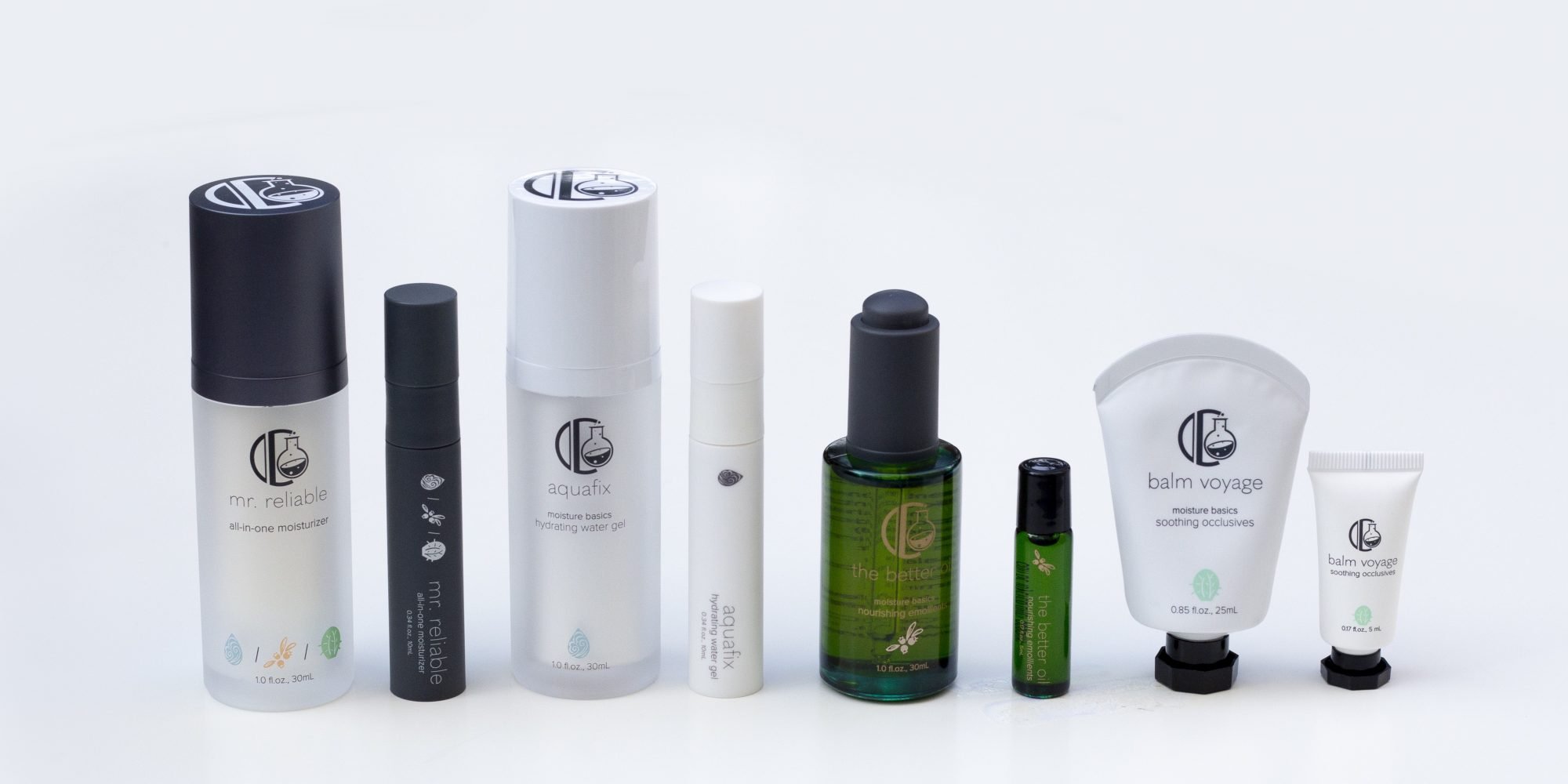
Cosmetic Chemists And Chemist Confessions Founders Victoria Fu And Gloria Lu Turn To Science To Take The BS Out Of Skincare
Makeup artists have long come to the fore to lead beauty companies. Perfumers are increasingly stepping out from behind the bottle. But cosmetic chemists concocting skincare products rarely enter the spotlight. Former L’Oréal formulators Victoria Fu and Gloria Lu have taken off their lab coats to reveal what the job is about and demystify skincare. Starting on social media nearly two years ago with the Instagram account Chemist Confessions and now with a brand under the same name, they debunk product myths and break down ingredient lists. “A lot of cosmetic chemists we know are kind of shy,” says Lu. “We don’t see many voices out there that focus on ingredients like we do.” Beauty Independent chatted with Fu and Lu about a cat called Kuma, the controversy over silicones, ingredient percentage disclosure, their product development process, and the problems with beauty marketing.
How did you become cosmetic chemists?
Lu: I wasn’t really sure what I wanted to do after graduation. At that time, I was studying chemical engineering and my curriculum was geared to the oil industry. Late in the game, I realized I didn’t have interest in the field. At that time, you would either be on an oil rig or in academia, where you would spend 10 to 20 years on a project. I happened to score an internship with a lipstick lab and that opened my eyes to that side of the world. In the cosmetic world, I saw you how you could apply your knowledge to a product quickly, and it was practical application. I really enjoyed that.
Fu: We were the same major, chemical engineering, and I also didn’t know what I wanted to do after I graduated. I went down a different track and was more geared toward nanomedicine and creating drug carriers, and I worked on those for acne research. Once I was at a point where I finished my thesis and was trying to figure out what my job would be, I realized that I didn’t want to go into pharma, which would have been the next logical step. I wanted to do something more lighthearted with faster project turnaround times. I was lucky enough to land a job in skincare.

When you got into the beauty industry, what surprised you about it?
Fu: For me, what was surprising was the quick project turnaround time. You can quickly get a formula you made into a jar on the shelf. When you are in a school lab, you don’t do that.
Lu: As a consumer, you don’t know about all the thinking that goes into a product. There is so much emphasis on the experience from the texture to scent. As a formulator, there is a lot of painstaking consideration of how the product feels, and that’s not something consumers especially think about, but it’s definitely a very important part of the experience.
Another aspect that consumers don’t necessarily think about is the level of testing that needs to be done to ensure quality and the stability of the product is extensive. That’s extremely important, and you realize it’s not equal between brands. Standards within the industry are wildly different. Something that blows our minds is that there isn’t a standard.
For example, you can send your product to a testing facility, and it may have different protocols. There is USP <51> testing, and there’s the ISO method. At the bare minimum, every product should go through one or two different protocols, but you don’t have to test at all to launch your product. That part of product development is not well understood.
How did you start doing social media together?
Fu: We happened to meet, and our personalities really complemented each other. We have the same humor. I never had an Instagram account before. Gloria had an Instagram account for her cat. It did surprisingly well. We joined forces to figure out how we could build an Instagram account that could teach people about skincare.
Lu: When you are co-workers, you definitely talk with the same lingo, you complain about the same stuff, and you share the frustrations you have with the industry. As she mentioned, I had a cat account that grew to 4,000 followers. My cat’s name is Kuma, which means bear in Japanese. He is a very big cat. I wrote little poems on that account, but I don’t keep it very active anymore. Once in a while, I still get messages asking me how Kuma is doing, and Kuma’s great. As you can imagine, we travel a lot for work now, and Kuma is in good hands. My boyfriend takes care of him, and he’s getting spoiled. The account was an outlet for my boredom, but it showed how vast the social media community is.
When did you launch the Instagram account Chemist Confessions?
Fu: Chemist Confessions started on Instagram back in August 2017. At the time, neither of us was working. We didn’t really know what we wanted to do with it. We shared the same thoughts about the industry. The market is oversaturated, and it’s very difficult for a person to shop for the right product for their skin. The marketing can be very distracting. We get a lot of questions from our friends and family. They always ask for suggestions for their skin dilemmas. As chemists, the people who work with these ingredients and incorporate them into formulas, we realized we could talk about ingredient lists to help people not be scared by them. We could use them as a way to pick out ingredients that might be good or bad, and make the shopping experience a lot easier.
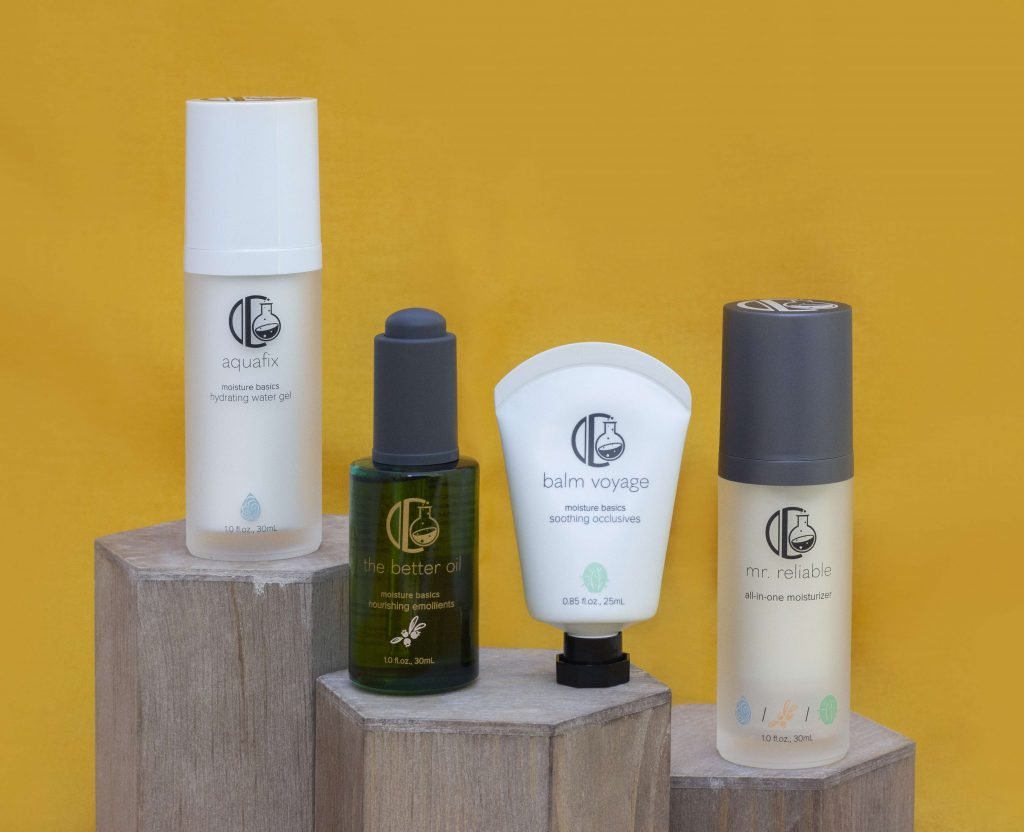
What did you post about initially?
Lu: When we started, we were very regimented. We had a lot to say. We did a series of biology posts. We aren’t derms, but we are chemists who have a base level of understanding, and we wanted to present science in an understandable way. We feel that science should be for everyone, and it shouldn’t be so daunting. Then, we started decoded ingredient lists and highlighting key ingredients.
Fu: We did some sketches explaining UVA and UVB, and explaining what SPF is. We did things around wrinkles and moisturization. We wanted to establish skincare basics and bring our chemist angle to them.
What are popular posts?
Fu: Definitely the decodes. They are what people ask for the most. We get a lot of requests to decode products, and it’s pretty cool because we find a lot of brands we never heard of before that way. It’s a great way for us to keep tabs on the market.
Lu: Also, posts featuring active ingredients like retinol and vitamin C are popular. People are more aware of these ingredients and their benefits, but these highly effective ingredients can come with usage problems. People are always wondering how to best use them.
Fu: People want to know how to use multiple actives at the same time. For example, they ask if they can use retinol and AHAs in the same routine. We always say it’s not really necessary. There is no need to overload your skin. They work on different pathways, but you can control irritation potential if you don’t use them both.
Lu: Another popular question we get is about whether vitamin C can be used with niacinamide. The answer is yes. The drama behind it is that niacinamide and vitamin C form a yellow complex that people think is ineffective for your skin, which isn’t true. At the same time, the two different ingredients should be formulated with different pH values. Layering the two ingredients isn’t bad, but if you see a product with them, be cautious because the pH level could be a problem.
The topic of silicones has been trending. What are your thoughts on silicones?
Fu: Silicones are a category. People see one single culprit, and they are not that at all. In any category, there are going to be people it doesn’t work for and, for others, it’s totally fine. There can be a silicone formula that would work better for my skin than it would for someone else’s skin.
Lu: For the most part, we feel they shouldn’t be demonized. They aren’t necessary for everyone, but, at the same time, you can say that for every ingredient. We are big advocates of listening to your skin. We don’t like demonizing whole categories. You might be using a silicone cream that could be great for your acne-prone skin. Then, you hear something that says silicone clogs pores, and it’s the devil. You go on the hunt for another cream, but, all along, the cream you were using was right for you. That’s what happens with irresponsible marketing.
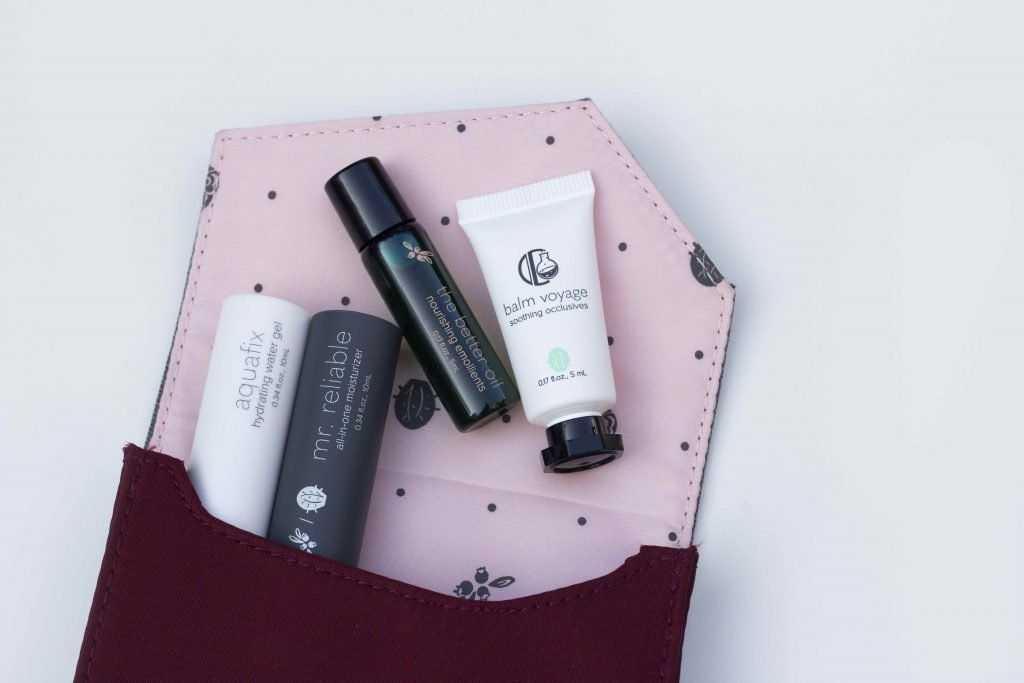
Did you know from the beginning of your Instagram account that you wanted to do a line?
Lu: Not really. We were considering leaving the industry altogether when we started the Instagram account. We were just jaded. As a chemist, a lot of times, you aren’t necessarily the decision driver on a project. If we went back to being chemists, we might have gone back to the same stuff we were having frustrations with to begin with.
Fu: We wanted to do something new. When we met, we were both feeling like, “OK, I have been doing this for a few years, what more can I do?” It just so happened that we took a break from working and decided to start this. I would be lying if I told you I didn’t think, “If I could make a formula, what would I do?” I think every chemist asks that question in their head, but there were no really constructive thoughts about that until the Instagram account. Also, we had a decision. If we did get a job, what were we going to do with the account? It was pretty time-consuming.
What was the process like to create your products?
Lu: When we started, we broke down skincare products as we see them. In terms of function, we see four categories: cleansing, moisturizing, SPF and actives. We walked through all four categories to think about what we would do in the categories to meaningfully improve them. We landed on moisturizing to start because that’s the foundation of all things skincare, and it can be frustrating because, a lot of times, you don’t know what works or doesn’t.
If you work at a company, the consumer experience might be dictated by a marketing person who tells you what the need gap is in the market and what’s trending. Right off the bat, we thought about what’s missing for consumers and how we solve the problem of the skin needing moisturization because of seasonal or hormonal changes.
Fu: Your skin is constantly changing as you travel, age and go through stressors in your life. How do we create solutions that elevate and amplify your routine so there is no need to constantly be on the hunt for another moisturizer?
Lu: We have thoughts on all four categories of skincare, but, instead of coming out with a full line of cleansers, SPFs and moisturizers, we approached it category by category. We see a lot of companies saying, “Throw everything else you own out, and replace it with our products.” We don’t find that marketing helpful. We want to create tools that amplify people’s routine rather than replace it.
Walk us through the products.
Fu: As chemists, we break down moisturizing ingredients into three categories. The first one is humectants, which are things like hyaluronic acid and glycerin. The second is emollients. These are your light oils that add glow. The third one is heavy-duty occlusives that seal in moisture. They sit on top of the skin.
We made a product in each category with best-in-class ingredients. We created Aquafix, which is our humectant-based water gel. We have The Better Oil with plant oils and fatty acids and, then, we have an occlusive called Balm Voyage that uses petrolatum and a little bit of silicone. By tweaking the balance in these categories, it should help you acclimate your skin. We also have a fourth product called Mr. Reliable, which is an all-in-one moisturizer. We know that layering and customizing is not for everyone. There are people who are lost in terms of where to start, and Mr. Reliable is a lightweight moisturizer that incorporates ingredients from all three of the moisturizing ingredient categories.
Lu: People don’t understand that, for the most part, everything on the market is a blend of these things, but you don’t really know what the blend is. If you layer, you might get more oil than you bargained for. From our perspective, part of the frustration of shopping for moisturizer is that you may not know what your skin needs.
Another unifying theme of the line is soothing ingredients. Active ingredients are really hot now, and skin is constantly under stress, but a lot of the anti-inflammatory or soothing agents in the market are not in meaningful percentages in formulas. We use heavy doses of soothing agents, and we put the percentages right on the box.
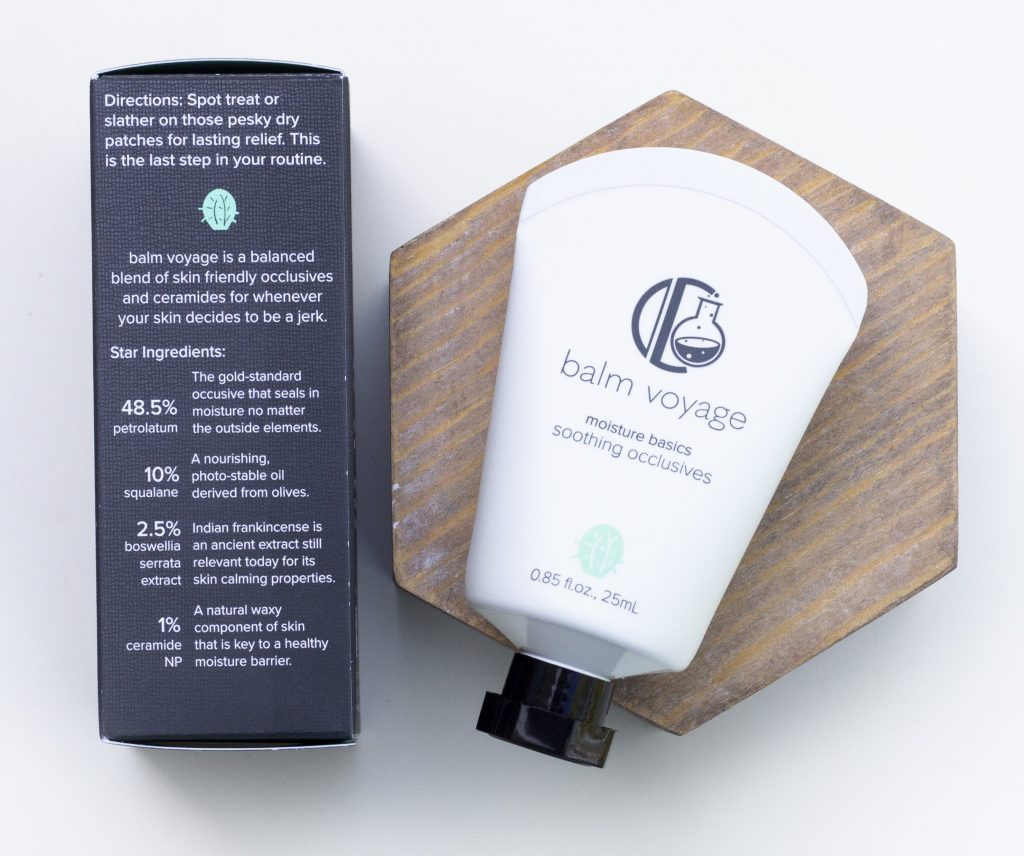
Why do you think it’s important to disclose percentages?
Fu: Not everyone is going to know the right percentages. You would have to read a lot of journals and studies out there to know, but our policy is transparency and quality. We are proud of the levels that we are using, and we know that they are competitive.
Lu: We want to raise awareness. People should be asking questions about percentages. Concentration really matters, and it’s not something talked about on the market much. We hope that, by putting the percentages on the packages, people will talk about concentrations more.
Some brands worry about revealing their secret sauce. Do you?
Fu: If you want to talk about the effectiveness of skincare actives, there are studies out there that give those percentages. There is no secret sauce about that. The secret sauce can be in the texture, a lightness or unique feel.
Lu: It’s a risk for us to put percentages on the packaging and a lot of brands think percentages are secret sauce, but, at the end of the day, we want to be a brand that serves customers and not hoard these numbers. Honestly, it’s not hard to guesstimate them anyway if you have a skilled chemist.
How do you plan to build the line?
Fu: From a product standpoint, we want to round out the skincare fundamentals. We are planning a couple of launches for this year. One is a cleanser and the other is an acid treatment. We also just launched what we call Hatchery, which is a product development incubator where we involve our followers. They are hyperaware and super valuable to our brand.
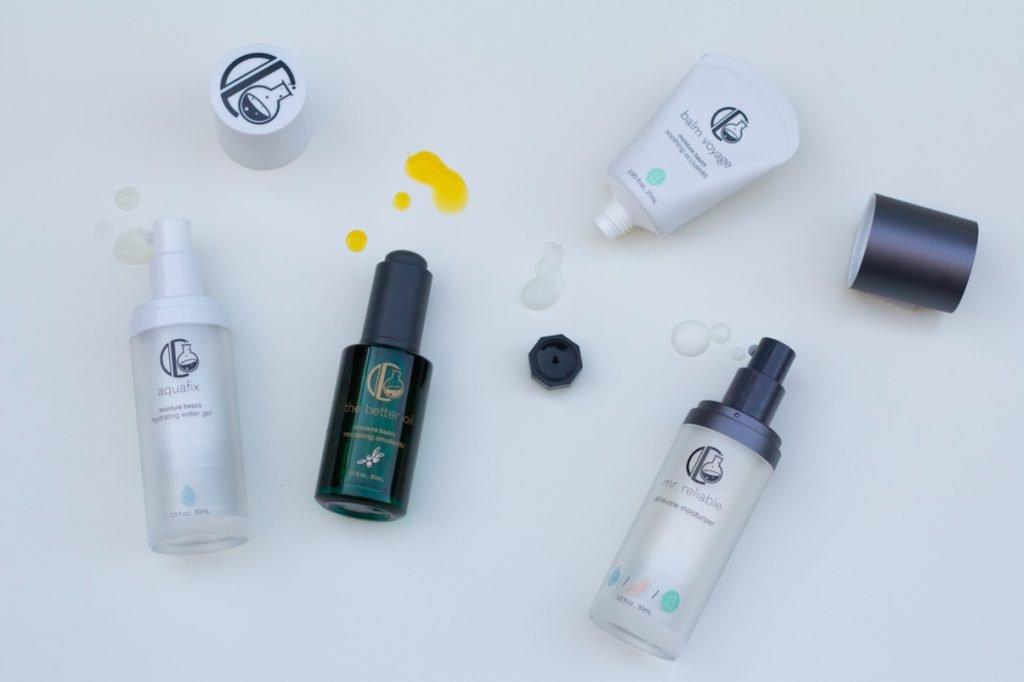
Where are your products available?
Fu: We’re mainly sold online through our website, but we’re also currently sold on Beautylish as well as at a beauty store in New York called New London Pharmacy. We are definitely open to retail although, right now, about 75% of our sales are direct-to-consumer. Our solutions are a little bit technical and have a learning curve, and we are strategic about finding retailers and experts like aestheticians that are passionate about our skincare approach.
Lu: We met Nils [Johnson, co-founder of] Beautylish by chance. We are based in Oakland, and Beautylish is in San Francisco. It’s a startup, and we bonded over small company pains. They liked what we are doing and took a chance on us. We launched on there in December. It’s been really good, but we are just getting the ball rolling. We are doing a lot of work to keep up content while being mindful of our distribution partners to give them support.
What role do you see your content continuing to play?
Lu: When we came up with our product, we didn’t want to change the account into just something that features our products all the time. We definitely made a commitment to stay true to the content we have been doing. We have stuck to teaching people how to read ingredient lists, and we keep the tone really positive. We don’t think skincare should breed negativity. It can be a hard subject. It’s very personal, and everyone wants their skin to look its best. Sometimes what we don’t like and we see in other communities is people taking a negative spin on skincare and bashing certain products. We find that unnecessary. We want to create a community where the discussions are open and positive.


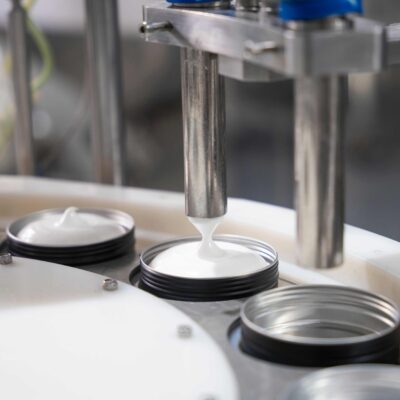


Leave a Reply
You must be logged in to post a comment.